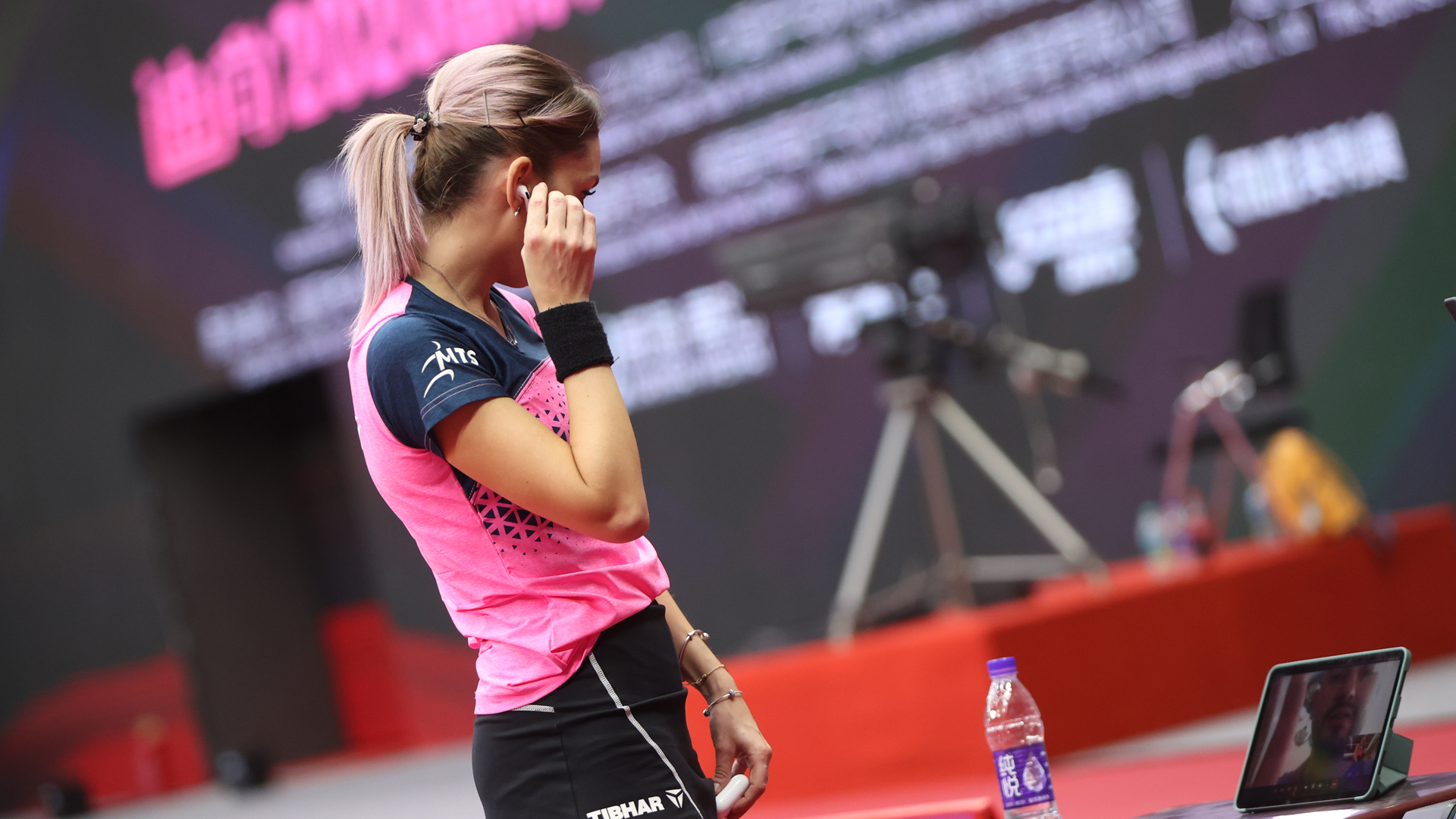"Like a bridge over troubled water," analogized Simon and Garfunkel, "I will lay me down." 2020 has been nothing if not troubled. The staggering casualties from the COVID-19 pandemic have changed everyone's lives. For many, the hardest part has been adjusting to the forced separation of "social distancing." Bernadette Szocs of Romania (pictured) is used to playing with her coach Cristian Tamas by her side. Of course, nothing is quite normal this year. Tamas was unable to attend the the recently concluded 2020 ITTF Women's World Cup in Weihai, China, owing to the tournament's "bubble" format. Nonetheless, he monitored the match via live video and offered real-time virtual coaching for his star player between games. Video analysis is a growth industry in sports. Start-ups such as India's Stupa Analytics offer a detailed statistical breakdown of your play based on analysis of match performance, albeit after the fact. For Bernadette Szocs and her coach Cristian Tamas, this would have amounted to little more than Monday morning quarterbacking, so they went ahead and pioneered what might be called synchronous video analysis. While Szocs did not manage to take home the trophy, instead falling to champion-elect Chen Meng of China, there will be more opportunities for innovation at the upcoming 2020 ITTF Men's World Cup. For 2017 champion Dimitrij Ovtcharov of Germany, technology may also prove a boon in difficult times. Like the women's edition, the men's World Cup is a "bubble" environment. Players must check into their hotels and self-quarantine for five days, pending COVID-19 test results, before they can set foot in the Thunderdome knowns as Weihai Nanhai Olympic Sport Centre. Any player caught leaving his hotel can be assured of detection and ejection. While the Chinese are understandably strict with regard to pandemic protocols, they are also nothing if not hospitable. In lieu of a mint on one's pillow, each World Cup competitor is furnished with an electronic assistant. Like C-3PO, each is programmed for etiquette and protocol, although in this case these endangered characteristics are expressed in the form of flying ping-pong balls. While players cannot mingle freely during quarantine, each will find not only a ping-pong table but a top-of-the-line table tennis robot with which to practice. Despite the amenities, players surely yearn to return to conventional practice and playing formats. "The conditions are anything but a picnic," admits Ovtcharov, adding on a more positive note, "We can’t wait to play again." While fans worldwide salivate at the long-awaited return of table tennis, players and coaches must make the most of a difficult situation. Many have turned to technology as something of a bridge over "bubble" water.
More at re:Jerusalem
